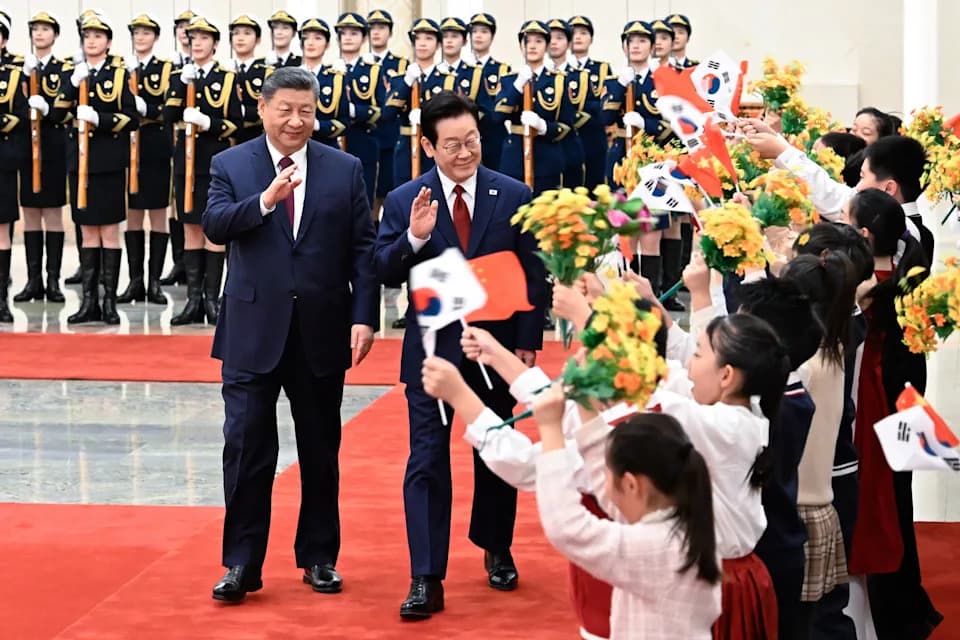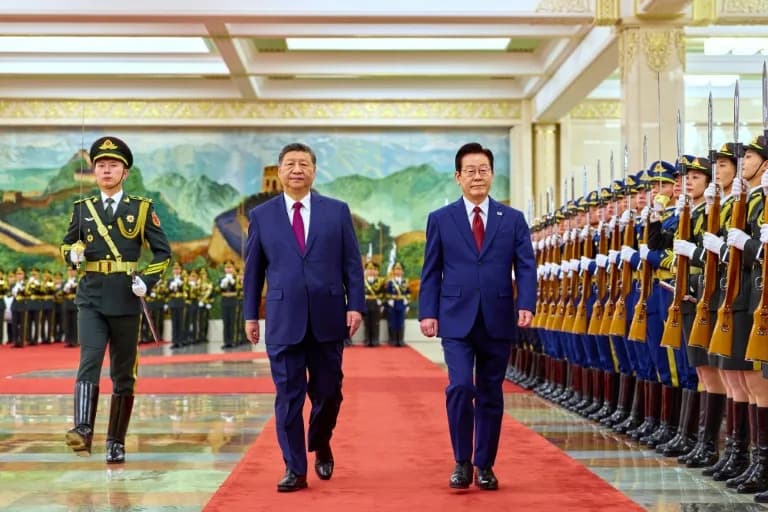South Korea’s largest companies — led by Samsung and Hyundai — pledged major new domestic investments after a meeting with President Lee Jae-myung to address concerns raised by a recent U.S. trade deal. Samsung will invest 450 trillion won over five years and add a Pyeongtaek chip line by 2028, plus AI data centers in South Jeolla and Gumi. Hyundai plans 125 trillion won for domestic R&D from 2026–2030, while SK, Hanwha Ocean and HD Hyundai also boosted home investment plans. The U.S.-Korea deal includes $150 billion for U.S. shipbuilding, $200 billion for other U.S. industries (capped at $20 billion per year), and tariff cuts on Korean cars.
Samsung, Hyundai and Other Korean Giants Pledge Massive Domestic Investments After U.S. Trade Deal

Major South Korean firms commit to large home investments to reassure public after U.S. pact
Samsung Electronics and other leading South Korean companies on Sunday announced substantial new domestic investment plans following a meeting with President Lee Jae-myung, who said the commitments are intended to allay concerns that firms might prioritize U.S. projects under a recently finalized trade agreement.
Lee met with business chiefs days after his administration concluded a trade pact with the United States under which Seoul pledged roughly $350 billion in U.S. investments in return for avoiding the former Trump administration’s steepest tariffs.
Samsung, a global leader in memory chips, said it will invest 450 trillion won (about $310 billion) over the next five years to expand operations in South Korea. The company plans to add a new production line at its Pyeongtaek complex — scheduled to begin operating in 2028 — to meet rising semiconductor demand driven by artificial intelligence. Samsung also announced plans to build AI data centers in South Jeolla Province and in the southeastern city of Gumi to support regional development beyond the greater Seoul area.
Hyundai Motor Group said it will invest 125 trillion won (about $86.3 billion) from 2026 through 2030 to boost domestic research and development and advance technologies including AI, robotics and autonomous driving.
SK Group, another semiconductor heavyweight, and shipbuilders Hanwha Ocean and HD Hyundai likewise pledged increased domestic spending. SK Chair Chey Tae-won said his group intends to invest at least 128 trillion won (about $88.3 billion) domestically through 2028 with a focus on AI and related technologies.
At the meeting, President Lee praised the private sector's role during negotiations with Washington but urged companies to keep robust investment at home to ease public concern that capital could shift abroad. He said the government is exploring policy measures — including regulatory easing — to create a more business-friendly environment in Korea.
The trade pact released last Friday details $150 billion in South Korean investment for the U.S. shipbuilding sector and an additional $200 billion for other U.S. industries, with Seoul stating the latter will be capped at $20 billion per year to limit financial strain.
Under the agreement, the United States agreed to reduce tariffs on South Korean cars and auto parts from 25% to 15% and to apply tariffs on South Korean semiconductors on terms "no less favorable" than those granted to comparable competitors in the future.
Implications: The announcements aim to reassure domestic stakeholders that major Korean firms will continue to invest at home even as Seoul deepens industrial ties with the United States. The scale of the pledges underscores the central role of the semiconductor and automotive sectors in South Korea’s economic strategy amid growing global demand for AI-related technologies.
Help us improve.


































